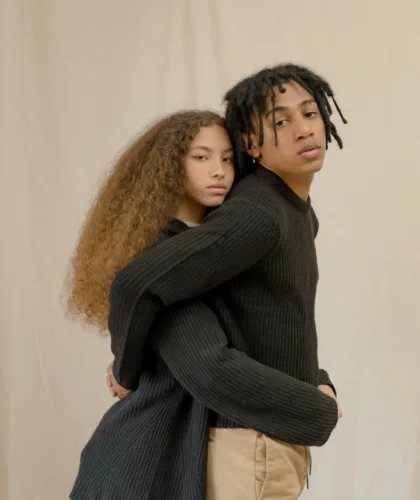Why we give partners cute nicknames? Diminutive nicknames like “kisonek”, “sunshine” and “little sweets” are considered a sign of infantilism and immaturity of lovers. At the same time, even the most adult and independent partners can contact them. Touching words and Baby Talk – this is how sugary conversations are called by foreign researchers – are one of the markers that everything is fine in a couple. We understand why.
Nicknames speak of trust
Baby Talk shows how a person’s parents communicated with him. Some were called a bunny or a kitten. When talking to others, the elders raised their voices and lisped more often. With others, parents could invent hundreds of diminutive variants of the name.
Growing up, a person perceives such conversations as a sign of love, because only the closest ones communicated with him this way. It’s not uncommon for people to use cute nicknames or mangling familiar words already in a relationship, says behaviorist Clarissa Silva. It is noteworthy that a person does not communicate in a similar way with all partners.
Baby talk or sugary nicknames indicate that lovers care about each other. Moreover, they do not need to worry about how they look in the eyes of another person. Their relationship is stable, and they have nothing to worry about, which means they can babble like at an early age.
Silva notes.
Linguist Frank Nussel comes to the same conclusion. According to him, parents (more often mothers or grandmothers), teaching the child basic skills, communicate with the baby in a language he understands: with baby talk. Adults use it only in the presence of significant people, and these are not always sexual partners.
They help you get closer.
Back in 1993, Ohio State University researchers Carol Bruce and Judy Pearson found that couples who used baby nicknames and sugary words were more satisfied with the relationship than members of the control group. Such vocabulary helps lovers to relax and feel safe.
Bruce and Pearson also found that words like “kitty” and “pie” can create a special bond with a partner. New York family therapist Katherine Smerling agrees. In her opinion, returning to the child model – and this is exactly what happens during Baby Talk – people show their vulnerability to loved ones. This leads to the fact that partners trust each other more: not everyone allows everyone to call themselves the sun.
Some see this as just a fad of lovers, but in general, we are talking about such a term as “regression”. If we rely on the theory of psychoanalysis, we will see that people imitate childish mannerisms when they want special intimacy with partners.
Smerling points out.
People need care, and nicknames give it
The Estonian-American neuroscientist Jaak Paksepp noted that a person is initially programmed for 7 types of interaction: search, rage, fear, sexual desire, care, grief or panic, and play. These are the primary emotional systems on which a person’s personality is built. Sugary nicknames, according to psychotherapist Nan Weiss, cover the need for play or caring activities, because they are reminiscent of childhood.
When people are very young, Weiss notes, they often talk and fool around: they learn in a playful way. Such interactions affect calmness: children cannot make time for them when they are worried or nervous. Baby Talk in adulthood helps to remind the partner that the person loves him, appreciates the general comfort, and wants to take care of both the beloved and the relationship.
Baby talk helps to escape from reality
Silva reminds that people who love sugary expressions are not yet infantile in themselves. Stupid nicknames do not reflect character traits, but only help to achieve mutual understanding with a partner: satellites still continue to go to work, pay bills, and do other important things.
Such vocabulary helps to take a break from the image of an all-powerful adult. So even the most serious person can sometimes call his partner a candy or a bun.
If your companion suddenly resorts to Baby Talk, then they may want to be a little baby – and there is nothing wrong with that. He wants to bring playfulness, tenderness, and vulnerability into your relationship.
Silva says.
At the same time, not everyone likes sugary nicknames – and this is also normal. Moreover, there are situations in which such vocabulary is inappropriate – for example, during serious conversations or being in public places. Not everyone can switch from anger to tenderness, just like not everyone wants to show their inner child in front of a boss or friend. Why do we give partners cute nicknames?







